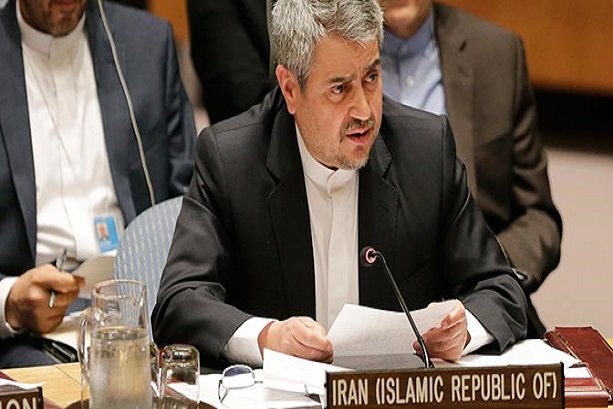Gholam Ali Khoshroo, Permanent Representative of Iran to the United Nations, made the remarks on Tuesday at the 49th Session of the Commission on Population and Development in New York.
Following is the full text of his speech:
Madam Chairperson,
I am pleased to make this statement on behalf of 25 Member States of the Group of Friends of the Family. The Group congratulates the Bureau for their election and thanks the Bureau and the Secretariat for all the preparations to having a successful session.
Since it is the first session of the Commission following the adoption of the 2030 agenda for sustainable development, we re-emphasize the inter-linkages between successful implementation of the Agenda and the strengthening of the demographic dividends which can also be reinvigorated through ICPD Program of Action.
The family is a central player when it comes to strengthening demographic evidence base for the 2030 agenda for sustainable development.
Successful implementation of both 2030 agenda and ICPD PoA depends on policies that promote the role and stance of the family in all societies, specially should no one be left behind. A strengthened family institution will certainly contribute in the flourishing of the human person and ultimately well-being of our societies.
Universal Declaration of Human Rights recognizes the family as the natural and fundamental group unit of society that is entitled to protection by society and the State. This message is still extremely relevant within the context of achieving sustainable development. Very recent agreement among UN member states during the 60th CSW session reiterates such salient role. The Commission recognized the family as a contributor to development, including in the achievement of the internationally agreed development goals.
The family continues to be the basic and primary provider for each individual - being it physical, economic or spiritual support. It is our conviction that we also need to continue to cherish and highlight the support and comfort that the family generously offers to us.
Madam Chairperson,
I am now making the following statement in my national capacity.
Taking advantage of the demographic trends for the post-2015 development agenda requires attention to all aspects of overall socio-economic development as combating poverty through empowering poor, disadvantaged people and those living in vulnerable situations, remains a daunting challenge.
The achievement of this objective requires further strides towards equitably distributing benefits of economic growth to redress inequalities. Essential social services should be integral parts of all policies to eradicate poverty.
Culturally-sensitive, pragmatic and holistic population policies with a development oriented approach are essential.
Over 31 percent of Iran's 80 million population is between 15 to 29 years old and this very young demographic profile represents an opportunity for rapid economic growth. The Government of the Islamic Republic of Iran, remains fully committed to genuinely intensifying its efforts to eradicate poverty, inequalities and disparities within the society.
Iran has improved the status of women in the family and the society, including through promoting equal opportunities for their education, ensuring their access to all necessary health services, including reproductive health care services, offering economic incentives and support to female headed households.
Maternal mortality ratio declined from 120 in 1990 to 17 per 100,000 per live births in 2015. Iran has a strong national network of primary health care services designed to provide quality maternal and reproductive health care to the remotest parts of the country.
Since 2014 the health sector has undergone significant reforms concerning system policies and services to, among others, achieve the targets of Universal Health Coverage (UHC) and improve citizens’ satisfaction with health service provision and enhance equity.
According to the Human Development Report Iran has gained the second best achievement in HDI improvement among developing countries between 1990-2012 or since introduction of the Report.
Madam Chairperson,
The economic and social impact of an ageing population represents both an opportunity and a challenge to all societies. Many counties are seeking to identify how best to assist elderly people with long- term support.
As Iran is also heading towards an ageing society in coming decades- in light of last decades’ strong demographic transitions- the general population decree issued at the highest political level, emphasizes the need for a reliable fertility rate above-replacement level, as well as paying special attention to the older persons. The Government cognizant of this emerging trend has already established a National Council for the Older Persons.
Madam Chairperson,
Let me conclude by emphasizing that my government remains committed to ensuring a safer and healthier life for all its citizens and is continuing to put their right to development at the center of its policies.
Thank you very much Madam Chair.
MS/PR

























Your Comment